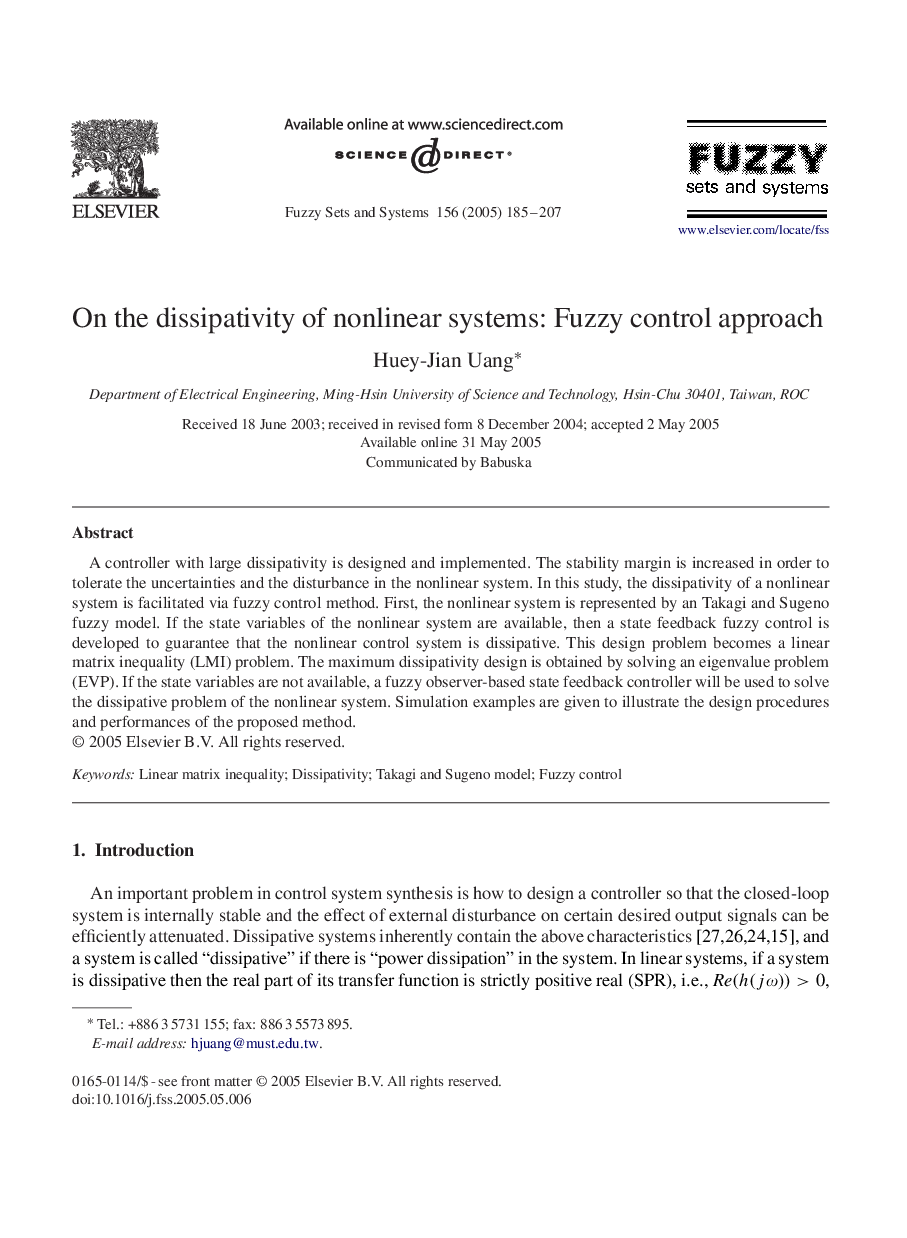| Article ID | Journal | Published Year | Pages | File Type |
|---|---|---|---|---|
| 10323821 | Fuzzy Sets and Systems | 2005 | 23 Pages |
Abstract
A controller with large dissipativity is designed and implemented. The stability margin is increased in order to tolerate the uncertainties and the disturbance in the nonlinear system. In this study, the dissipativity of a nonlinear system is facilitated via fuzzy control method. First, the nonlinear system is represented by an Takagi and Sugeno fuzzy model. If the state variables of the nonlinear system are available, then a state feedback fuzzy control is developed to guarantee that the nonlinear control system is dissipative. This design problem becomes a linear matrix inequality (LMI) problem. The maximum dissipativity design is obtained by solving an eigenvalue problem (EVP). If the state variables are not available, a fuzzy observer-based state feedback controller will be used to solve the dissipative problem of the nonlinear system. Simulation examples are given to illustrate the design procedures and performances of the proposed method.
Related Topics
Physical Sciences and Engineering
Computer Science
Artificial Intelligence
Authors
Huey-Jian Uang,
